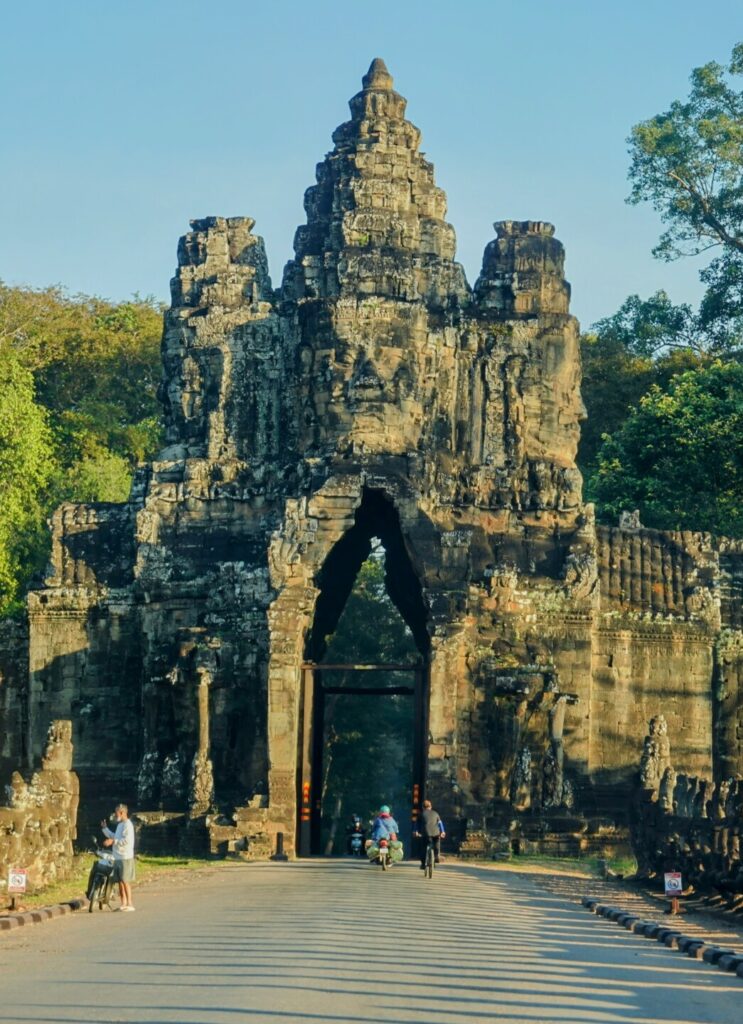
Siem Reap is known for its architectural complex Angkor Wat, recognized by UNESCO as a World Cultural Heritage site. It is the most famous historical and spiritual architectural work in the city, split up into five main areas. Watching the Angkor Wat sunrise is very popular, as the sun rises behind the temples creating a sunrise that reflects the pools in the front.
Angkor Wat is only a short distance from Siem Reap, therefore it is possible to cycle or even walk the small distance. Online taxis and ride-hailing services like Grab and Tada operate in Siem Reap. If you choose to hail a ride, please make sure you agree a fixed price for the journey before you set off. Minivans and minibuses are also available.
There are a few ways to explore the temples of Angkor. The complex is open from 5 in the morning until 6 in the afternoon. There are two circuits to explore Angkor, a short one (17km) and a long one (26km). Many people do the short tour on the first day and follow up with the largest and most important temples over the following days. Nevertheless, these circuits are only a guide and there are hundreds of other temples not included in the tours. It is recommended to hire a tour guide to visit the temple complex, as understanding more about the history will help appreciate the temples. The following link offers professional guides and daily tour guide rates:
https://www.angkortourguides.com/home-sub-menu/tour-guide/daily-tour-guiderate.html Alternatively, guides can also be found at the entrance of Angkor Wat.
There are three different types of tickets to access the Angkor temples: A one-day ticket costs $37 per day, the 2/3-day ticket $62 and the one-week pass is $72.
The dress code requires everyone to cover their shoulders. While women are to cover their knees, men can wear shorts, though it is recommended to wear trousers, to be able to climb the top terraces of the main temple in Angkor Wat. While exploring Cambodia, please show respect for Buddhist culture and traditions. This includes dressing modestly when visiting temples, being mindful of your behaviour, and observing local customs. Keep in mind that Angkor is a place of worship and one of which Cambodians are extremely proud, and your respect helps preserve the rich heritage of this beautiful country.
Angkor Wat Bayon
Ta Prohm Banteay Srei
Angkor Thom Preah Khan
Banteay Samre Banteay Kdei
Pre Rup Phnom Bakheng
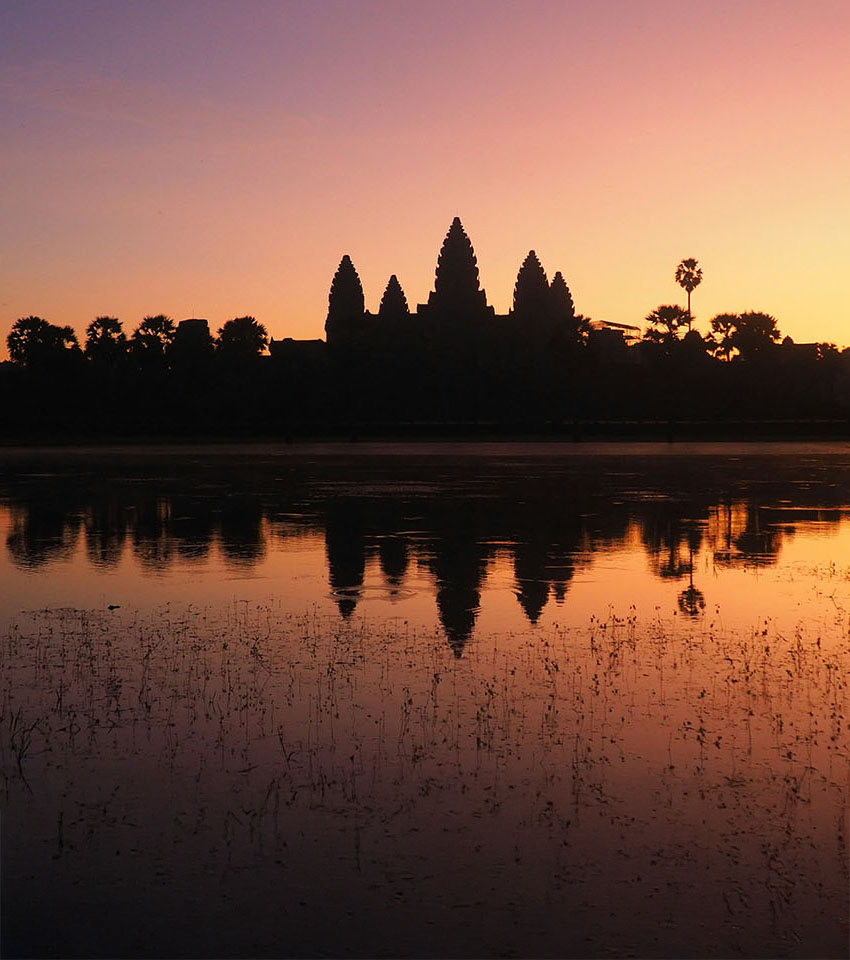
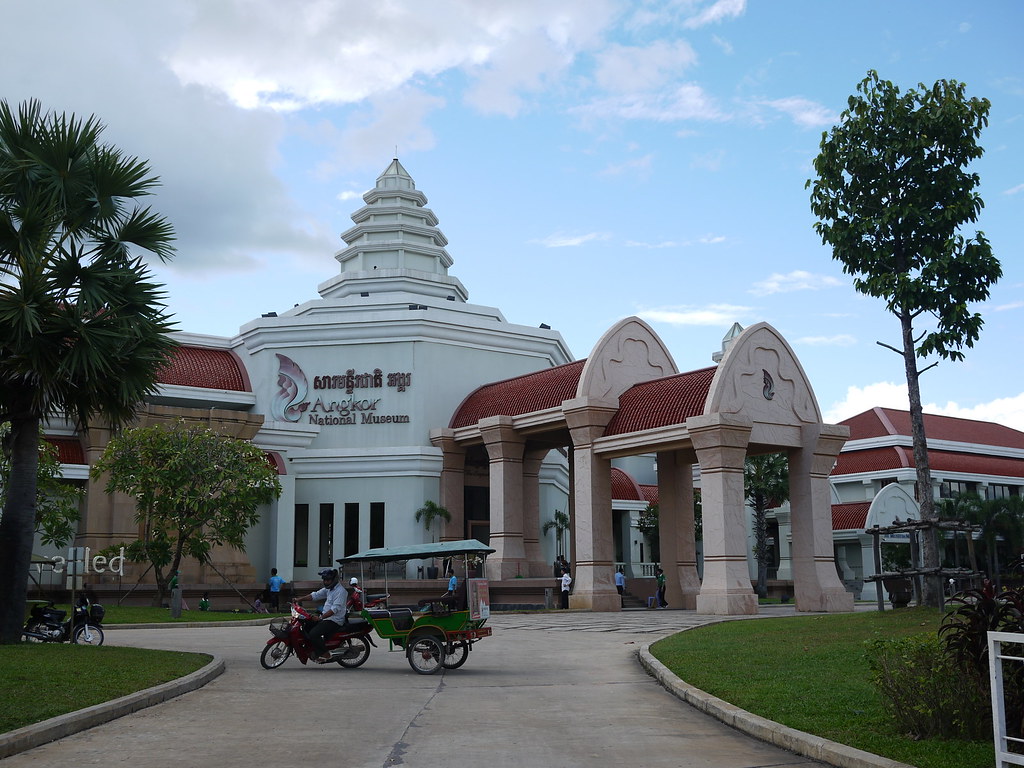
Located near Angkor Wat temple, the Angkor National Museum (founded in 2007) is dedicated to showcasing artifacts from Angkor era. The museum serves as an educational resource on art and culture of the Khmer civilization. Through engaging
multimedia presentations, you can immerse yourself in the Golden Era of the Khmer Empire.
Exhibits of Angkor National Museum include sculptures, ceramics, inscriptions, and other relics, allowing a deep insight into the Khmer culture, religion and daily life during the Empire’s golden ages. The language barrier isn’t something to worry about, since multi-language audio guides are available. All in all, the museum offers a comprehensive showcase of the Angkorian period.
Considered one of the main shopping destinations in Siem Reap is the bustling and lively Angkor Night Market. In 2007 it was established to preserve traditional Khmer handicrafts. Nowadays Angkor Night market is not only the ideal shopping place, but it is also popular for eating.
The market is open from 5pm to midnight, every Monday to Sunday. There are over 200 stalls gathered at the market and a great variety of clothes, handicrafts, statues and souvenir cards can be found. Even though countless copies of Angkor Night market can be found, the original one is surely the best and worth a visit while staying in Siem Reap.
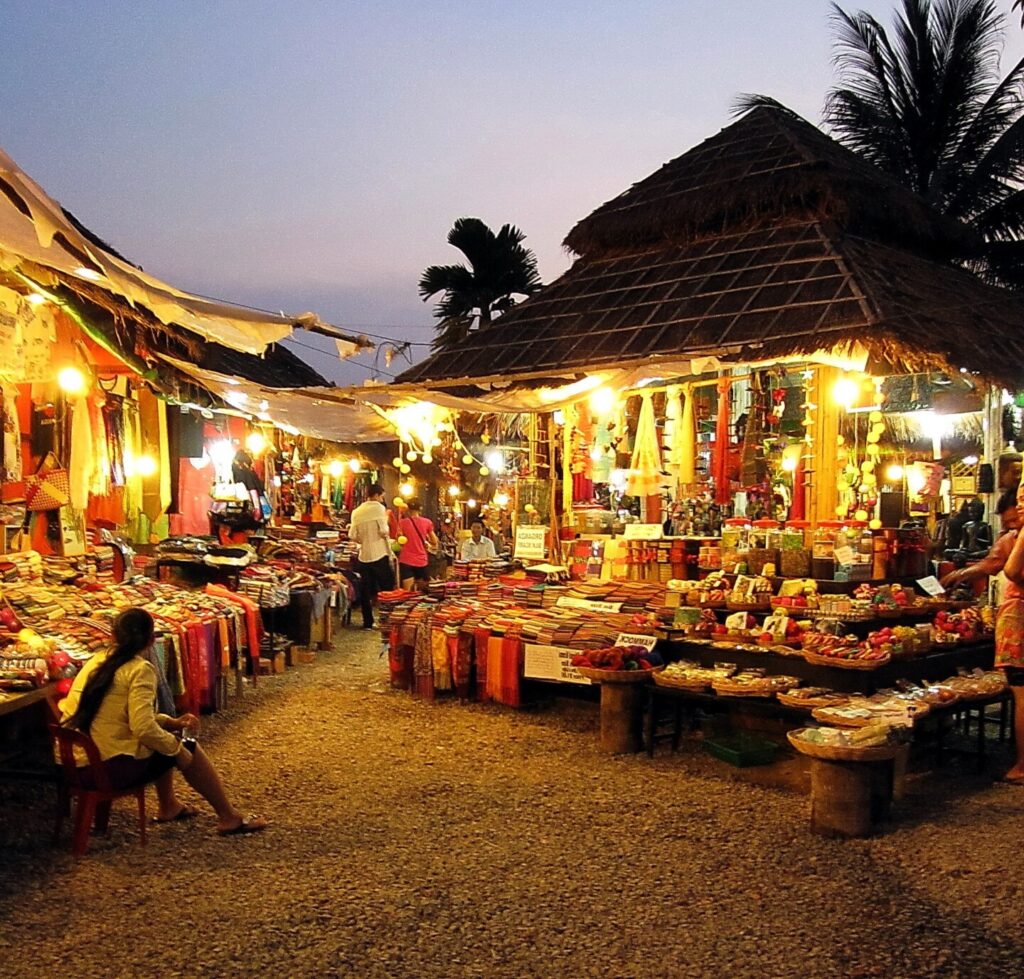
More than just a circus, Phare performers use theatre, music, dance and modern circus arts to tell uniquely Cambodian stories. The young circus artists will astonish you with their energy, emotion, enthusiasm and talent, making Phare Circus the top-rated modern cultural performance in Siem Reap.
Phare artists are students and graduates from Phare Ponleu Selpak’s (www.phareps.org) vocational training center in Battambang. Today more than 1,200 pupils attend the public school daily and 500 attend the alternative schools. Phare Ponleu Selpak also has extensive outreach programs, trying to help with the problems highlighted in their own tales. Phare, the Cambodian Circus offers these students and graduates somewhere to hone their skills and a place to earn a decent wage.
The Phare experience offers a full evening of entertainment, with dining, shopping and theatre available at the venue.
For anyone interested in the culinary side of Cambodia, visiting Preah Dak village is a must. The village offers plenty of authentic Cambodian dishes and deserts and an authentic insight into Cambodian rural life and cuisine. The famous “Nom Akor” can only be found in Siem Reap and is a soft steamed rice muffin filled with coconut milk- a must try when visiting Preah Dak Village.
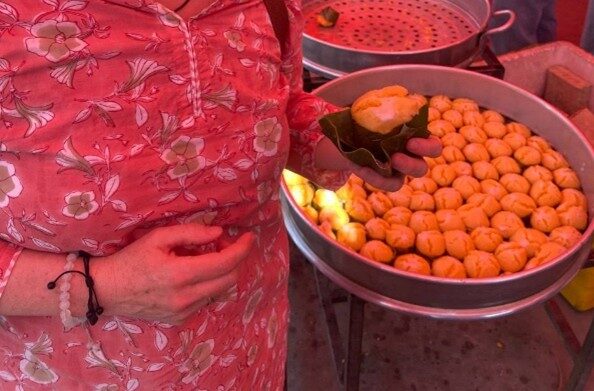
Not only does the peace café, located just five minutes from Siem Reap’s old market offer fresh and healthy vegetarian meals, visitors can book vegetarian cooking classes or join yoga and meditation classes. Additionally, the peace café offers the dialogue with Buddhist monks. These “monk chats” provide insights into their life and Buddhist teachings. Visiting the peace café is also the perfect activity for anyone looking for a special gift or souvenir, since the café offers fair trade products, promoting sustainable practices
A must for anyone interested in sustainable and luxurious handicrafts. Visitors can visit the lotus farm, where one of the rarest and most expensive textiles in the world is created: lotus silk. In workshops the complicated process is taught and explained how artisans extract fiber from the lotus stem and hand weave it into natural fabric. Additionally, participants can try weaving themselves. Even though the lotus fabric must undergo a highly intensive labor, it is very environmentally friendly using less carbon and water than nearly all other forms of fiber, including silk.
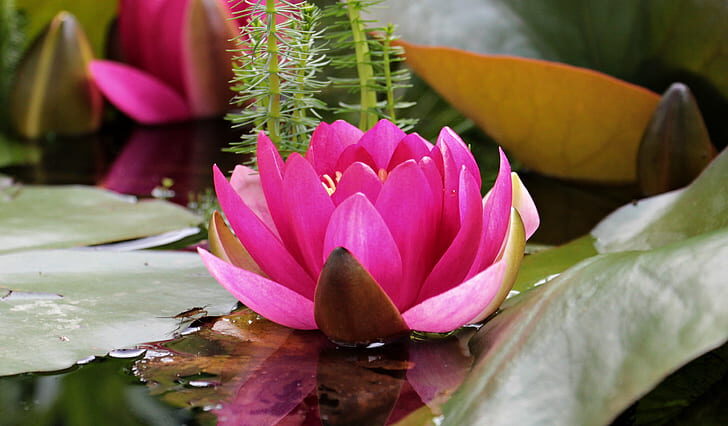
APOPO’s Visitor Center offers the opportunity to visit the organization’s Landmine Detection Rats, also known as Hero Rats. For anyone seeking a unique experience in Siem Reap, this is an ideal activity. During a guided tour, visitors learn how the rats are trained to detect landmines and unexploded ordnance in Cambodia. The tour includes a live demonstration, an explanation of the recent history of landmine contamination, and the chance to hold one of the rats!
If you are planning to explore Cambodia, there are a wealth of different options. Cambodian Travel Immersion offer a carefully curated selection of authentic Cambodia tour packages that go far beyond the typical tourist experience. From the ancient temples of Angkor Wat to hidden villages, floating communities, and vibrant local markets, every CTI tour is designed to connect you deeply with Cambodian culture, history, and people.
Forum is a global network of organisations working through volunteers to achieve sustainable development
Global Volunteering Forum
©2025 IVCO. All rights reserved. Web Design by Britt Novakowski